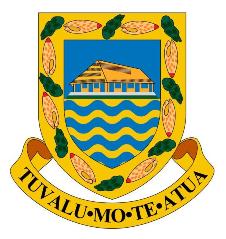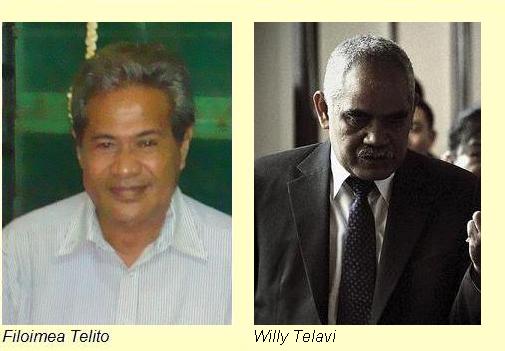

KINGDOM OF TUVALU
• Official name: Fakavae Aliki-Malo i Tuvalu (Kingdom of Tuvalu)
• Location: Pacific Ocean
• International organisations: African, Caribbean and Pacific Group of States, Commonwealth of Nations, Pacific Islands Forum, United Nations
• Borders: None
• Coastline: Pacific Ocean
• Land area: 26 Km2
• Population: 12,000
• Annual GDP (PPP) per capita: US$1,600 (2009 CIA estimate). World ranking: 163
• Ethnicity: The Tuvaluans are a Polynesian people.
• Language: Tavaluan is the official language but English is widely understood and is the language of business and
administration.
• Religion: Most Tuvaluans are Protestant Christians.
• Form of government: Constitutional monarchy and parliamentary democracy
• Capital: Funafuti
• Constitution: The
Constitution of Tuvalu came into effect on 1 October 1978.
• Head of state: Queen Elizabeth II, Queen of Tuvalu. The Queen came to the
British throne on 6 February 1952, and has held the title Queen of Tuvalu since
1 October 1978. The Queen's functions in Tuvalu are exercised by a
Governor-General, appointed by the Queen on the advice of the Prime Minister.
Filoimea Telito took office as Governor-General on 15 April 2005.
• Head of government: The Prime Minister, appointed by the Governor-General. The Prime Minister is the leader of the majority in the legislature and is accountable to it.

• Legislature: Tuvalu has a unicameral legislature, the Parliament (Fale I Fono or Palamene o Tuvalu, which has 15 members, elected
from single- and multi-member constituencies for four-year terms. The Parliament does not have a website.
• Electoral authority: None known
• Freedom House 2009 rating: Political Rights 1, Civil Liberties 1
Political history
The islands which are now Tuvalu were discovered by the Spanish in
1568. They attracted little attention until the late 19th century. In
1877 they were claimed by Britain and named the Ellice Islands, but
were not actually placed under British control until 1892 when they
became part of the British protectorate of the Gilbert and Ellice
Islands. The islands were occupied by the Japanese from 1941 to 1943. In
1975 the Gilbert Islands were separated to become Kiribati, and in October 1978 the Ellice Islands became independent as Tuvalu.
Tuvalu, with 12,000 people, is the third-smallest sovereign
state in the world (ahead of Nauru and the Vatican). It has
enjoyed peaceful, stable and democratic government since independence. There are no
political parties. Willy Telavi has been Prime Minister
since December 2010.
Updated March 2011
|

